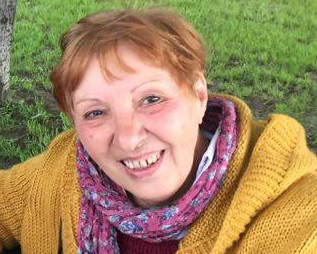On May 9, Europe Day and the Day of Victory are celebrated. This date provokes different memories about the past and expectations about the future. Victory Day commemorates the victory of the Soviet Union against Nazi Germany at the end of the Second World War. The day is celebrated in Russia with spectacular festive processions and parades. In the People's Republic of Bulgaria, May 9 also used to be marked, but following November 10, 1989, organizing official celebrations on the day was terminated. However, to this day many people across the country pay homage to the fallen Bulgarian and Soviet soldiers and lay flowers at their monuments. This year, people will lay wreaths at the monument of the Soviet Army downtown Sofia before a concert with famous Bulgarian and Russian songs takes place.
Bulgarians also mark May 9 as the end of World War II in Europe in 1945.
Europe Day is celebrated on the date when French Foreign Minister Robert Schuman read the historic declaration that paved the way to the unification of Europe. On May 9, 1950, he called for placing French and German production of coal and steel under a common authority to avoid future conflicts. The Schuman Declaration is the foundation of the European Coal and Steel Community, which is the forerunner of the European Union. Since 1985, May 9 has been celebrated as Europe Day. In Bulgaria Europe Day started to be celebrated in 2005. In 2016, iconic buildings in Sofia, Plovdiv and Varna will be illuminated in the colors of the EU flag at 9 pm. These Bulgarian cities will be European capitals of various international events in the coming years. A music show, which will start with the Anthem of Europe, will also take place. A public reading entitled "Stories of Europe" is organized and 10 specially selected texts will be read. Also, celebrities will read interesting stories related to peace and unity. The event can be watched live on www.europarl.bg at 7 p.m.
It turns out that in Bulgaria the Day of Victory and Europe Day divide people and that it is difficult for the two holidays to coexist. Disputes revolve around the fact many Bulgarians associate Victory Day with the Soviet army and the Soviet Union and shameful memories of past times, characterized by endless restrictions. Others associate the past with bright memories of better times. Here is what some Sofia citizens told us:
 "We used to have celebrations on this day. I am not a supporter of that regime but we were forced to take part in the celebrations. If you did not, then you would not be promoted at work, or you will have other troubles. We were calmer back then, though. The good thing was that there was work for everyone and teams were very good. Relationships between people were different. Now it is good because young people can travel abroad. For us that was a taboo. I was glad that we joined the EU, but I fear that it would fall apart. Now we have no leaders. In the past personalities used to matter more,” Lyubka Krasteva says.
"We used to have celebrations on this day. I am not a supporter of that regime but we were forced to take part in the celebrations. If you did not, then you would not be promoted at work, or you will have other troubles. We were calmer back then, though. The good thing was that there was work for everyone and teams were very good. Relationships between people were different. Now it is good because young people can travel abroad. For us that was a taboo. I was glad that we joined the EU, but I fear that it would fall apart. Now we have no leaders. In the past personalities used to matter more,” Lyubka Krasteva says.
 Ivan Stoyanov opposes celebrating Victory Day:
Ivan Stoyanov opposes celebrating Victory Day:
"The monument of occupiers (Monument of the Soviet Army), whom communists called liberators, must be removed. I am not sure if Victory Day should be celebrated in Bulgaria. Europe Day could be marked, though.”
Georgi Ignatov has different views:
"If it had not been for the Soviet Union, there would have been no Europe. Europe would have been under German boot. Now people tend to downplay the achievements of the Soviet Army but Victory Day and Europe Day should be marked together."
According to surveys, the majority of Bulgarians support the membership of the country in the EU but some of them criticize inefficient absorption of European funds. A major concern is also the ongoing refugee crisis. Unlike elderly people, young Bulgarians we meet on the street are usually familiar with neither Victory Day, nor the Day of Europe and say May 9th is just an ordinary day.
English: Alexander Markov
Photos: Luisa LazarovaThe eagerly-awaited Tulip Parade at the University Botanical Garden in Balchik is at its peak. This year’s parade includes more than 45,000 bulbs, and 27 varieties that are new to the Garden, among them Tulipa "Carnaval de Nice, which combines..
In 2024, Bulgaria has 15,737 foreign students, making up 8.6% of all current students in the country. By comparison, this share has doubled over the past decade. This data comes from NACID , updated annually in the Bulgarian University Ranking..
Divers will clean the seabed around the port of Sozopol today, reports BTA. "Since 2018, we have been doing the cleaning, completely voluntarily, with our own resources, with the idea of doing something useful for everyone," said Nayden Nedev, diving..
An international conference “AI and education: The road to innovative teaching and learning” brings together 50 teachers from the Bulgarian schools..
Divers will clean the seabed around the port of Sozopol today, reports BTA. "Since 2018, we have been doing the cleaning, completely voluntarily, with..
In 2024, Bulgaria has 15,737 foreign students, making up 8.6% of all current students in the country. By comparison, this share has doubled over the..

+359 2 9336 661
